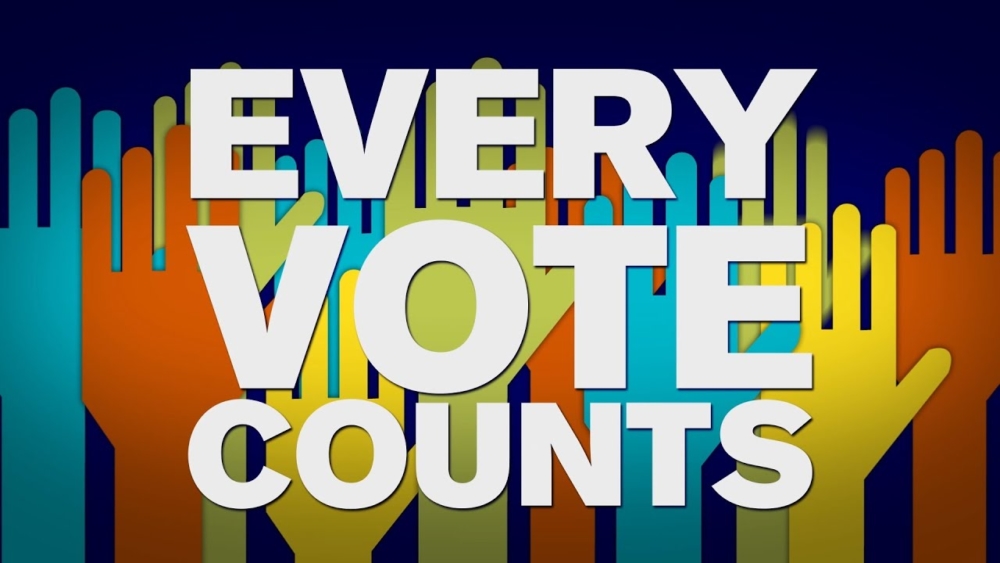 State Offices and Candidates
State Offices and Candidates
Source: CT Insider
Editor’s Note: ALL Stratford Candidates running for office have been contacted and asked to submit information for publication.
Governor
In many respects, the political environment in 2022 is a complete reversal from the last race. Lamont enjoys the highest approval ratings of any Democratic governor in the nation, buoyed both by his response to the COVID-19 pandemic and the state’s overall rosy financial outlook.
Meanwhile Donald Trump has left the White House, and while he continues to cast his shadow over much of the GOP, voters now have a Democratic presidential administration to complain about from problems such as inflation, crime and the cost of gas.
Stefanowski has sought to tap into those feelings of frustration this time around, running a campaign almost solely focused on his economic message. The two candidates are joined by Rob Hotaling, endorsed by the Independent Party over Stefanowski.
Ned Lamont
DEMOCRAT
Before being elected the 89th governor of Connecticut in 2018, Ned Lamont had two opportunities to introduce himself to the state’s voters with unsuccessful runs for the Senate in 2006 and governor in 2010. A little over a year after taking office, however, any expectations for how his administration may have played out under normal conditions were tossed aside as the pandemic forced Lamont and other governors to shift their focus toward preventing hospitals from overflowing and a massive number of their constituents from dying. While Connecticut faced substantial challenges early on as a result of its proximity to New York City, the overall rate of deaths attributed to the virus is about the same as the U.S. average, and Lamont has been credited with overseeing one of the most effective vaccination rollouts in the country. The Greenwich businessperson is again choosing to mostly self-fund his campaign, beginning with $6 million from his vast fortune. Lamont is cross-endorsed by the Working Families Party.
Running mate: Susan Bysiewicz is seeking a second term as lieutenant governor alongside Lamont. Bysiewicz previously served as a state representative and secretary of the state.

Bob Stefanowski
REPUBLICAN
Bob Stefanowski, a former corporate executive from Madison, has a much broader platform in his second run for governor. He has pitched a $2 billion tax relief plan that includes expanding and extending the state’s gas tax holiday and allowing families earning less than $400,000 per year to deduct up to $10,000 from their taxable state incomes. He’s also called for doing away with 200 of the state’s so-called nuisance fees, and has said, if elected, he will restore law enforcement’s trust in government by bringing back qualified immunity – a controversial provision of the state’s police accountability law passed in 2020. He’s accused Lamont of misrepresenting his stance on abortion, saying he is pro-choice and would uphold Connecticut’s 1990 law codifying abortion.
Running mate: Laura Devlin, who has served as a state representative since 2015, is running alongside Stefanowski. Devlin represents the towns of Fairfield and Trumbull while serving on the legislature’s education, finance, revenue and bonding and transportation committees.

Robert Hotaling
INDEPENDENT
Rob Hotaling is a Senior Vice President at Webster Bank and, according to his campaign website, previously led a tech start-up during the Dot-Com Era and served as chief technology officer for several corporations. Hotaling’s policy platform includes the repeal or reduction of a number of taxes — such as the business property tax, motor vehicle tax, income tax and sales tax — along with more traditionally liberal positions such as support for abortion rights and the elimination of cash bail for non-violent crimes. Hotaling lives in Cheshire.
Running mate: Stewart “Chip” Beckett joins Hotaling on the campaign trail. Beckett is a former Glastonbury town councilor. He switched his party from Republican to Independent in the last year.

U.S. Senate
It seems as if there are two separate U.S. Senate races going on in Connecticut. The reelection campaign of Sen. Richard Blumenthal is one with multiple public events every day of the week in the kind of frenetic schedule that dates to his 20 years serving as state attorney general. Then there’s the campaign of conservative Republican challenger Leora Levy of Greenwich, a former sugar commodities trader who rode an endorsement from Donald Trump into an easy primary victory over former House minority leader Themis Klarides of Madison, who had won the party endorsement at its May convention. A Cuban-born, deep-pocketed member of the Republican National Committee, although she calls herself a “political outsider,” Levy does few public events.
Richard Blumenthal
DEMOCRAT
Blumenthal is seeking a third six-year term, but only since the election of President Joe Biden has he and other Democrats been in the majority, which succeeded in pushing through the American Rescue Plan Act and a bipartisan gun-safety reform that was spearheaded by Connecticut’s other senator, Chris Murphy. A longtime Greenwich resident, Blumenthal is basically ignoring GOP challenger Leora Levy. Traditionally a big vote-getter, in 2016 Blumenthal scored 1,008,714 votes to 552,621 over Republican challenger Dan Carter, a former state representative. First elected attorney general in 1990, Blumenthal was instrumental in defending Connecticut’s first ban on military style rifles, and won billions of dollars in the historic 1998 national settlement with the tobacco industry. Blumenthal is cross-endorsed by the Working Families Party.

Leora R. Levy
REPUBLICAN
A 65-year-old former sugar trader on the commodities market, Levy’s campaign regularly issues news releases attempting to link Blumenthal and President Joe Biden with “the far left.” Unlike the usual political wisdom that recommends running to the right to win a Republican primary, then moving to the center during the summer-into-fall campaign for the general election, Levy, seeking her first elective office, is doubling down on her ties to Trump politics, and recently boasted of a personal endorsement from a leader of one of the state’s anti-mask, anti-vaccine fringe groups. She regularly attacks Blumenthal as a “37-year career politician.”

U.S. House of Representatives
3rd Congressional District
Rosa DeLauro has been the U.S. Representative for Connecticut’s 3rd congressional district since 1991. Seeking reelection for a 17th term, DeLauro has consistently captured 58 percent or more of the vote. This year, DeLauro faces off against Republican candidate Lesley DeNardis, Green Party candidate Justin Paglino, and Independent Party candidate Amy F. Chai (also endorsed by the Libertarian Party). The district is in central Connecticut and encompasses New Haven and surrounding towns, including Branford, Hamden, Milford, and Woodbridge.
Rosa L. DeLauro
DEMOCRAT
DeLauro is seeking reelection for a 17th term. In 16 consecutive reelection wins, she has captured no less than 58% of the vote. Additionally, DeLauro served as chair of the House Appropriations Committee for the 117th Congress — the second woman to hold the position. She supports abortion rights, stronger gun regulations, and health policy issues. Regarding health policy issues, she leans into women’s health matters and sponsoring and introducing related bills.
Lesley DeNardis
REPUBLICAN
Former professor and lifelong Connecticut resident, Republican-endorsed DeNardis, if successful, would serve in the same district as her father did in the early ’80s. Her mission is to “restore the principles that made our country great,” which includes strengthening borders, supporting law enforcement, and spotlighting “wasteful and unnecessary” federal spending. DeNardis previously ran for state representative in the 88th district, but was unsuccessful.
Amy F. Chai
LIBERTARIAN
Chai, a registered Libertarian, carries a dual endorsement. Chai is a physician, licensed epidemiologist, and author who also won a U.S. Presidential Teacher award from the Obama administration for her achievements in homeschooling. She is focused on promoting unity through the Enfranchise America Act, which will maximize voter access and election transparency, along with the Viewpoint Discrimination Act focused on protecting personal viewpoints, especially in the workplace. Environmental issues to be addressed at the community level are also on her agenda. Chai is cross-endorsed by the Independent Party.
Justin Paglino
GREEN
Endorsed by the Green Party in 2020 and again this election, Paglino is seeking to oust DeLauro, once again anchoring his platform with advocating for comprehensive single-payer universal and free healthcare. Paglino also hopes to promote clean energy via educating people on the consequences of “not taking on the challenges of sustainability seriously.” In the 2020 election, he received less than 2% of the vote. Paglino is also an M.D. and holds a PhD in Virology.
Statewide Races
Secretary of the State
The open race to fill the state’s most senior office overseeing elections — along with a number of other administrative duties — was created when three-term incumbent Denise Merrill announced last June that she would retire from politics. That decision kicked off a crowded primary election, out of which emerged state Rep. Stephanie Thomas, D- Norwalk, and Republican Dominic Rapini. Once considered an afterthought among statewide races, the Secretary of the State’s office has emerged with newfound relevance to many voters following unprecedented attempts to question the results of the 2020 election. No Republican has been elected to the office since the mid-1990s. The current office-holder, Mark Kohler, was appointed by Gov. Ned Lamont in June after Merrill stepped down early to care for her ailing husband.
Stephanie Thomas
DEMOCRAT
In her first term serving as a state representative from Norwalk, Westport and Wilton, Stephanie Thomas sponsored legislation to expand absentee voting and implement automatic voter registration. She has taken a similar tone on the campaign trail, championing issues such as state constitutional amendment to allow for early voting. Thomas has also taken shots at Rapini’s history of questioning election results, telling supporters at her primary-night victory party in August that she hoped to be an “alternative to conspiracy theories and the sowing of misinformation.” Outside the statehouse, Thomas lives in Norwalk and is the owner of a non-profit consulting business. Thomas is cross-endorsed by the Working Families Party.
Dominic Rapini
REPUBLICAN
Dominic Rapini, a salesman from Branford, first stepped foot onto the political stage with a run for U.S. Senate in 2018, losing in the Republican primary. According to his campaign website, delayed results and reports of wet ballots during that election “fueled suspicion and mistrust of the results,” for Rapini, even as other unsuccessful candidates stood by the results. Two years later, Rapini was involved with a group that was admonished by state election officials after repeatedly filing baseless claims of election fraud. Rapini has since clarified his belief that Joe Biden is the “duly elected” president, and spent much of his campaign for secretary of state opposing voicing opposition to early voting and an expansion of absentee voting.
Cynthia R. Jennings
INDEPENDENT
Cynthia Jennings, a civil rights attorney, was forced to step down from her seat on the Hartford City Council in 2018 after switching her affiliation from the Working Families Party to the Democratic Party, the Hartford Courant reported. She announced her decision to run for the Secretary of the State under the Independent Party label in February. According to her campaign website, she has served as an elections monitor for the Secretary of State’s office and she told the New Haven Independent earlier this year that she supports implementing a ranked-choice voting system to boost the chances of third-party candidates.
State Treasurer
Democrat Erick Russell, an attorney from New Haven who specializes in public financing, and state Rep. Harry Arora, a Greenwich Republican, are vying to be the state’s next Treasurer. The job, which entails managing Connecticut’s $45 billion in pension assets, is open following the surprise decision by Treasurer Shawn Wooden earlier this year to not seek re-election to a second term.
Erick Russell
DEMOCRAT
Erick Russell, a former vice-chairman of the state’s Democratic Party, emerged victorious in a three-way race for treasurer in the August primary. Russell has focused his campaign on using the power of the treasurer’s office to advance social causes such as his proposal for a Connecticut Safe Harbor Fund. The fund would offer financial assistance to people who come to Connecticut for legally protected abortion care. He wants to partner with state treasurers across the country to create a national fund. He has called for “bringing greater stability, equity and fairness to Connecticut’s finances.” Russell is cross-endorsed by the Working Families Party.
Harry Arora
REPUBLICAN
Harry Arora, a first-term state legislator and his party’s endorsed candidate, was unopposed in the August primary. Arora, who runs his own Greenwich-based hedge fund, AlphaStrat LLC, has highlighted his background as best suited for the job, saying he will yield better returns on the state’s pension investments. He’s also called for reigning in the amount of debt the state issues to fund capital projects. Arora sued the Independent Party of Connecticut after failing to receive the minor party’s endorsement.
Jennifer Baldwin
INDEPENDENT
Jennifer Baldwin, a member of the Guilford school board, received the Independent Party’s endorsement to run for state Treasurer.
Joanna Laiscell
LIBERTARIAN
Joanna Laiscell, former executive director of financial management for Hartford Public Schools, is the Libertarian Party’s nominee for state Treasurer.
Comptroller
The comptroller’s office is open this November after the departure of incumbent Kevin Lembo, who resigned at the end of last year due to health issues. Vying to fill the position are Sean Scanlon, a state legislator nominated by the Democratic Party, Independent Party and Working Families Party, as well as Republican Mary Fay, a three-term member of West Hartford’s town council. Connecticut’s comptroller is responsible for providing accounting services, preparing financial reports and administering benefits to state employees, among other responsibilities.
Sean Scanlon
DEMOCRAT
Scanlon is a four-term state legislator representing Guilford and Branford, who currently chairs the Finance, Revenue and Bonding Committee. He cites legislative accomplishments including a cap on insulin costs and a bipartisan state budget in 2021. Outside of the legislature, Scanlon also serves as executive director of Tweed-New Haven Airport. Scanlon is cross-endorsed by both the Independent and Working Families parties.
Mary Fay
REPUBLICAN
Fay, a financial services executive, currently serves on West Hartford’s town council, as well as the town’s library board. In her bid to be Connecticut’s next comptroller, she touts her “fierce independence” and says her priorities include “restoring integrity, tightening financial controls, increasing efficiency and improving accuracy of reporting and forecasting.”
Attorney General
Four years after his election as Connecticut’s attorney general, Democrat William Tong is a front-runner to win a second term. His opponents include Republican Jessica Kordas, a trial lawyer from Norwalk, as well as two candidates from smaller parties. The winner of November’s election will be Connecticut’s chief civil legal officer, responsible for representing state agencies and protecting the rights of the state’s residents.
William Tong
DEMOCRAT
Tong, the incumbent attorney general, was first elected in 2018 after emerging from a competitive primary and defeating a Republican opponent by six points. He spent his first term targeting the pharmaceutical industry and major social media corporations and frequently confronting then-President Donald Trump. If reelected, he has pledged to continue many of the fights he began over the past four years, including against companies he blames for contributing to the ongoing opioid epidemic. Before being elected attorney general, Tong spent 12 years in the state legislature, representing Darien and part of Stamford. Tong is cross-endorsed by the Working Families Party.
Jessica Kordas
REPUBLICAN
Kordas, a trial lawyer from Norwalk who has never held elected office and pitches herself as a “political outsider,” says she grew interested in politics while advocating against masking requirements amid the COVID-19 pandemic. As attorney general, she says she would stand for “parents’ rights,” “freedom of speech” and “a return to integrity and accountability.” If elected, Kordas would be Connecticut’s first Republican attorney general in more than 60 years.
A.P. Pascarella
INDEPENDENT
Pascarella is an attorney from Greenwich, where he is a member of the 230-person Representative Town Meeting, the body that votes on the town budget.
Ken Krayeske
GREEN
Krayeske, a journalist-turned-civil rights attorney, previously ran for Congress in 2010, earning 1.2 percent of the vote in a race against Democrat John Larson. He touts several significant legal victories, including a class-action lawsuit that led the state to test all incarcerated people for Hepatitis C.
Ballot Measures
Early Voting
In addition to voting on candidates across the state and in local communities, Connecticut voters will face a question: Should the state allow early voting? Actually, the specific questions will be as follows:
“Shall the Constitution of the State be amended to permit the General Assembly to provide for early voting?”
The question is simple, relatively speaking. Certainly, it is simpler than the question posed on the same topic in 2014. That year, early voting was rejected by voters. Early voting allows registered voters to vote prior to Election Day in-person.
Why early voting?
The argument in favor of early voting is simple: It allows people to vote when it makes the most sense for them. If someone can’t get access to an absentee ballot and struggles to get to the polling place due to family, work or other obligations, they can go on a different day. The benefits could also include smoother Election Days with fewer votes being cast and shorter lines. Only four states in the country do not allow early voting, Connecticut being one.
Why not early voting?
Some believe early voting could actually lead to lower overall voter turnout. In short, people could take the convenience for granted, possibly put off voting and then can’t get to the polls on Election Day. There are also concerns that voters could cast a ballot early and could come across information afterward that makes them want to change their vote for a specific candidate. There are also concerns over fraud, although those have not necessarily been proven.


Many thanks for this complete, informative report on candidates and issues for CT’s upcoming state election. Very much NEEDED and APPRECIATED!!!